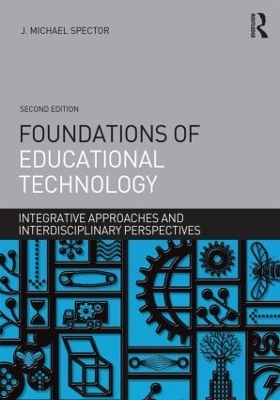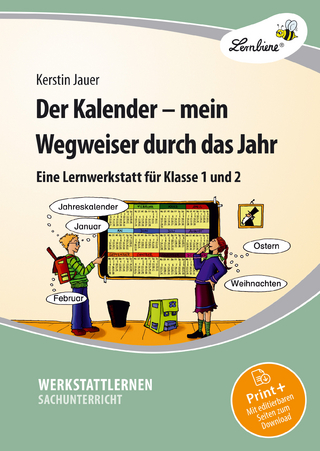
Foundations of Educational Technology
Routledge (Verlag)
978-1-138-79028-5 (ISBN)
- Titel ist leider vergriffen;
keine Neuauflage - Artikel merken
TELL: Primary presentations and pointers to major sources of information and resources
ASK: Activities that encourage students to critique applications and share their individual interpretations
SHOW: Activities that demonstrate the application of key concepts and complex skills with appropriate opportunities for learner responses
DO: Activities in which learners apply key concepts and complex skills while working on practice assignments and/or projects to be created for their electronic portfolios
The second edition of this textbook covers the core objectives addressed in introductory educational technology courses while adding new sections on mobile learning, MOOCs, open educational resources, "big data," and learning analytics along with suggestions to instructors and appendices on effective writing, professional associations, journal and trade magazines.
J. Michael Spector is Professor and former Chair of the Department of Learning Technologies at the University of North Texas, USA. Dr. Spector has served as Executive Vice President on the International Board of Standards for Training, Performance and Instruction (ibstpi), on the Executive Committee of the IEEE Learning Technology Task Force, and as past-President of the Association for Educational and Communications Technology (AECT). He was lead editor on the third and fourth editions of the Handbook of Research on Educational Communications and Technology, edited the Encylopedia of Educational Technology, and has more than 150 journal articles, book chapters, and books to his credit.
Preface
Acknowledgements
PART I — INTRODUCTION AND OVERVIEW
Chapter 1: Defining Educational Technology
Chapter 2: Values, Foundations, and a Framework
Chapter 3: Learning and Performing
Chapter 4: Teaching and Training
Chapter 5: Technology Support for Learning, Instruction and Performance
Chapter 6: Integrative Approaches to Planning and Implementation
PART II — THEORETICAL PERSPECTIVES WITH EXAMPLE APPLICATIONS
Chapter 7: Theories of Human Development
Chapter 8: Theories of Learning and Performance
Chapter 9: Theories of Information and Communications
Chapter 10: Instruction and Instructional Design Theories
PART III — PRACTICAL PERSPECTIVES WITH EXAMPLE APPLICATIONS
Chapter 11: Introducing Innovative Technologies and Managing Change
Chapter 12: Teaching with Technology
Chapter 13: Educational Technologies in the Workplace
Chapter 14: Designing Technology-supported Learning Environments
Chapter 15: Integrating Technologies into Activities and Tasks
PART IV — BROADENING THE CONTEXT
Chapter 16: Educational Technology Principles and Examples in a Variety of Contexts
Chapter 17: Professional Preparation and Training
Chapter 18: Scalability and Replication Studies
Chapter 19: Emerging Technologies
PART V — GLOSSARY OF TERMS AND REFERENCES
Glossary of Terms
References
Appendix A: Effective Communication Guidelines
Appendix B: Professional Associations
Appendix C: Journals and Trade Magazines
Index
| Reihe/Serie | Interdisciplinary Approaches to Educational Technology |
|---|---|
| Zusatzinfo | 14 Tables, black and white |
| Verlagsort | London |
| Sprache | englisch |
| Maße | 178 x 254 mm |
| Gewicht | 462 g |
| Themenwelt | Schulbuch / Wörterbuch ► Unterrichtsvorbereitung ► Unterrichts-Handreichungen |
| Geisteswissenschaften ► Psychologie ► Pädagogische Psychologie | |
| Sozialwissenschaften ► Pädagogik | |
| ISBN-10 | 1-138-79028-1 / 1138790281 |
| ISBN-13 | 978-1-138-79028-5 / 9781138790285 |
| Zustand | Neuware |
| Informationen gemäß Produktsicherheitsverordnung (GPSR) | |
| Haben Sie eine Frage zum Produkt? |
aus dem Bereich


